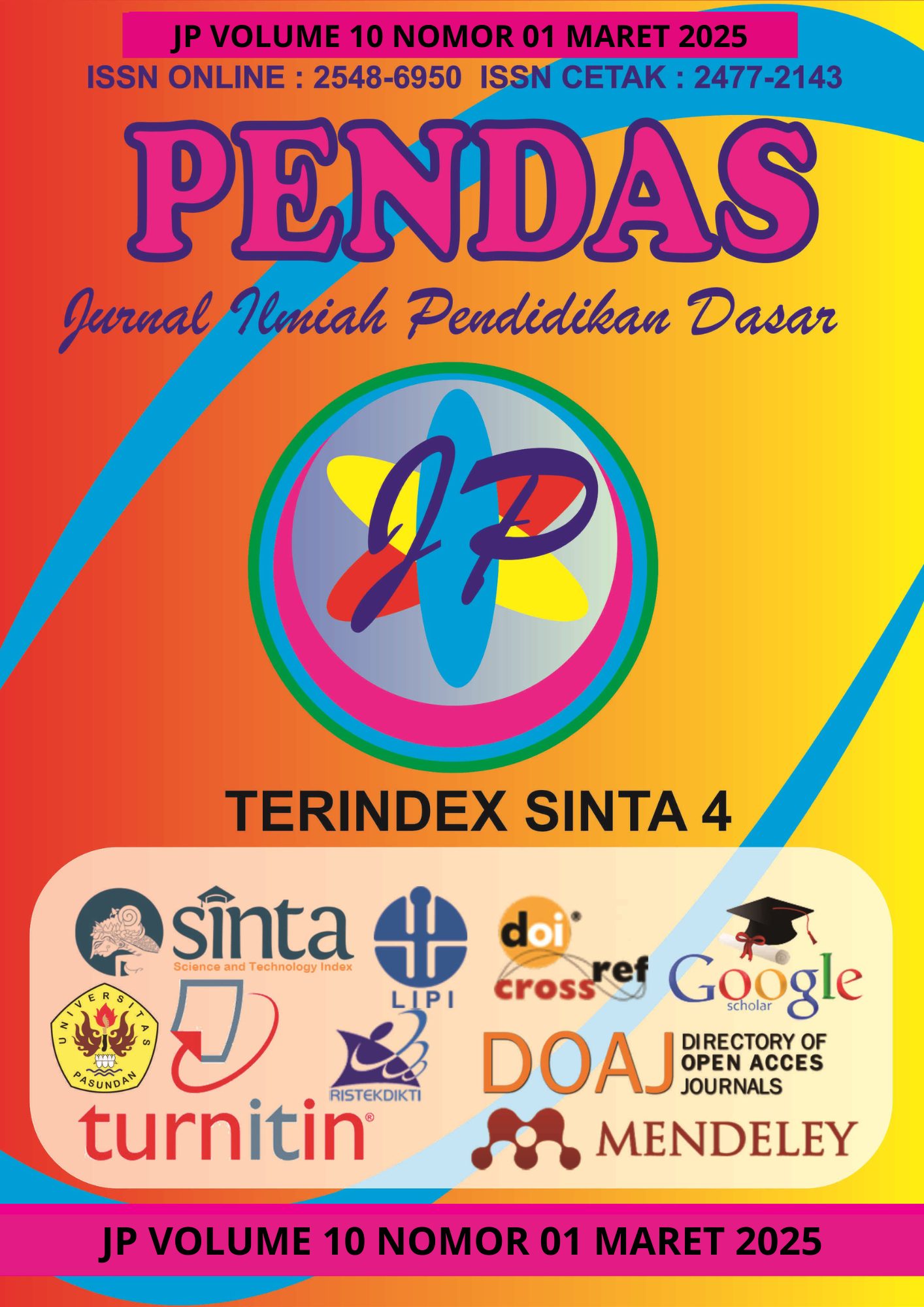PRINSIP-PRINSIP PENGEMBANGAN KURIKULUM
DOI:
https://doi.org/10.23969/jp.v10i01.23176Keywords:
principles development curriculum, madrasah aliyah al falaahiyahAbstract
The development of science and technology, the implications of which also spread to the world of education, means that education needs to innovate. This also has an impact on curriculum development which needs to adapt to current needs. In its implementation, it is necessary to pay attention to the principles of curriculum development, namely the principles of relevance, effectiveness and efficiency, continuity, flexibility, goal-orientation, as well as the principles of lifelong education. This research uses a library research approach. In this library research, the process of collecting, analyzing, processing and presenting books, journals and texts related to the research theme is carried out as reference material in the form of library reports. Madrasah Aliyah Al Falaahiyyah has started implementing the independent curriculum since last year. Apart from the fact that the ministry requires the implementation of the curriculum, this is an effort for the Madrasah to take a step forward to provide wider space for creativity and innovation in learning. Madrasas strive to present an appropriate curriculum that includes the principles of curriculum development in it. This aims to ensure that the curriculum can be implemented optimally. Overall, the application of these principles ensures that the madrasa curriculum is not only effective in achieving academic and spiritual goals, but also efficient in the use of resources, relevant to the needs of the times, and flexible to support the long-term development of student potential.
Downloads
References
Erdianto, Rudy., Halimah, Siti., Kurniawan, Pandi. (2024). Prinsip-Prinsip Pengembangan Kurikulum PAI. Jurnal Penelitian Pendidikan Indonesia, 1(4), 486-492.
Hamdan. (2014). Pengembangan Kurikulum Pendidikan Agama Islam (PAI) Teori dan Praktik. Banjarmasin, IAIN Antasari Press.
Juniarni, Citra. (2019). Prinsip-Prinsip Pengembangan Kurikulum Perspektif Islam. TAUJIH: Jurnal Pendidikan Islam, 1(1), 1-18.
Marzuqi, B. Munir., & Ahid, Nur. (2023). Perkembangan Kurikulum Pendidikan di Indonesia: Prinsip dan Faktor yang Mempengaruhinya. JoIEM: Journal of Islamic Education Management, 4(2), 99-116.
Prasetyo, Arif Rahman., & Hamami, Tasman. Prinsip-Prinsip dalam Pengembangan Kurikulum. PALAPA: Jurnal Studi Keislaman dan Ilmu Pendidikan, 8(1), 42-55.
Rusnawati. (2021). Dasar dan Prinsip Pengembangan Kurikulum Pendidikan Agama Islam. Jurnal Azkia, 16(1), 273-291.
Saputra, Miswar., dkk. (2021). Pengembangan Kurikulum Pendidikan Agama Islam. Aceh: Yayasan Penerbit Muhammad Zaini.
Setiyadi, Bradley., Revyta., Fadhilah, Ayunda. (2020). Prinsi-Prinsip Pengembangan Kurikulum. Khazanah Pendidikan: Jurnal Ilmiah Kependidikan, 14(1), 173-184.
Sumarni., & Muadin, Ahmad. (2023). Analisis Prinsip-Prinsip Pengembangan Kurikulum pada Lembaga Pendidikan Islam. Jurnal Pendidikan Islam Al-Ilmi, 6(1), 80-91.
Downloads
Published
Issue
Section
License
Copyright (c) 2025 Pendas : Jurnal Ilmiah Pendidikan Dasar

This work is licensed under a Creative Commons Attribution 4.0 International License.














































